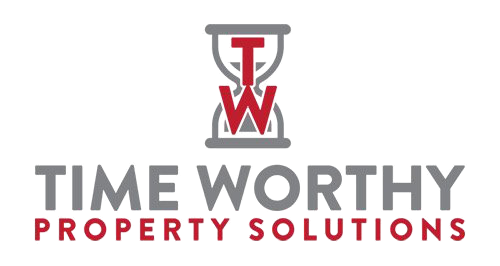Have you declared bankruptcy or think you may have to declare bankruptcy soon? If so, one of the most important questions to ask yourself is, “can I sell my house after filing Chapter 7 bankruptcy in Indiana?” There are certain policies and processes in place that allow you to do that, but it’s vital that you understand all of the options and decisions that go into selling a house during bankruptcy.
Before you even get to selling your house, do you understand the difference between Chapter 7 and Chapter 13 bankruptcy and why choosing one of them makes it easier to move forward with a home sale? These are the important questions you need to ask yourself because the answers will give you the information you need to know whether or not you can sell your house fast to a cash buyer like Time Worthy Property Solutions and avoid foreclosure.
While no one wants to think they’ll ever be in a financial situation that would cause them to declare bankruptcy, recent times have taught us that you never quite know what’s on the horizon and it’s always a good idea to be prepared. All it takes is a few changes and you could be in a position where you need to sell your Indiana home fast to avoid declaring bankruptcy or foreclosure.

Let’s take a closer look at Chapter 7 bankruptcy, how it’s different from Chapter 13 bankruptcy, and how to sell your house after filing chapter 7 in Indiana.
What is Chapter 7 Bankruptcy
Regardless of whether or not you live in Indiana, if you are going to file for Chapter 7 bankruptcy, you are going to be very clear about what that entails and what the process looks like, especially if you plan on selling your house.
First things first, what is bankruptcy, and what does it mean to declare bankruptcy? Whether you’ve been in this situation or not, you probably know other people who have struggled to repay their debts or keep up with mounting financial hardships. It can get so bad that your mortgage lender threatens foreclosure on the house they live in. In order to provide themselves with relief and a chance to recover, a person can declare bankruptcy, which begins a legal process that will allow someone the chance to get a fresh start, free from debts and collections. When you declare bankruptcy, you are preventing collectors and owners of the debt from coming after you for repayment until the financial situation is remedied, either through court or some kind of mediation.
While that might sound great, bankruptcy comes with some serious consequences that are worth your consideration. There’s a reason everyone doesn’t just do it all the time. Bankruptcy is seen as a last resort and when you choose to do it, it stays with you for a long time. First, a bankruptcy will be noted on your credit report for at least 7 years and perhaps as many as 10. This is going to impact your ability to get credit cards, loans, and mortgages at this time. It could also mean you get higher rates from your insurance company, not to mention it could make it harder for you to rent a place to live. While using bankruptcy can help in the short-term, it can also have some negative long-term impacts.
There are different kinds of bankruptcy, each one having its own pros, cons, benefits, and drawbacks. Chapter 7 bankruptcy is often used by individuals or families to get out from under a mountain of unsecured debt that would otherwise overwhelm you at a time when you’re unable to repay it. If you’re swamped with credit card debt, a mortgage, and other loans, and don’t have the income to pay it off, declaring bankruptcy can help you hit pause on your finances and then reset everything. But of course, you have to remember that it will impact your loan potential for the foreseeable future as well.
The bankruptcy process will take time (four to six months, on average) and it will cost you money, but the court will likely help you to get rid of much of the debt that you’re currently responsible for. The good news is that you won’t be responsible for that debt any longer. The bad news is that you might still be required to repay certain kinds of debts, such as child support, alimony, and student loans. So don’t think bankruptcy is a “get out of jail free” card.
Chapter 7 Vs. Chapter 13 Bankruptcy
So now that we understand Chapter 7 bankruptcy, let’s talk about the difference between that and Chapter 13 bankruptcy. Also known as reorganization bankruptcy, Chapter 13 gives the filing party protection from debts but is requiring them to commit to a plan to pay off those debts within the near future (three to five years, usually).
The good thing about a Chapter 13 bankruptcy is that it usually means you can keep certain assets, such as your house or car. That said, it also puts you in the position where you are required to make certain payments in order to keep that property. And while that might add up to less than what you would have owed before bankruptcy, you’re still going to have to make sure you can make payments on time. That’s why Chapter 13 usually requires someone to meet income levels as well as be below some debt limits to qualify for the program. But if you do make all your payments as required, you’ll be able to move forward and not have to deal with any unsecured debts that you previously owed.
Bankruptcy Laws in Indiana
While many of the laws that govern bankruptcy in Indiana are federal, there are some state laws you need to be aware of as well. Let’s run through everything you need to know about bankruptcy laws in Indiana.
If you are declaring a Chapter 7 bankruptcy in Indiana, you have to make sure your income passes a “means test.” In other words, your income level will determine how you can move forward. If you earn less than the Indiana median income for your household, you can move forward automatically. But if you don’t, there are some hoops you’ll have to jump through to qualify.
Before filing bankruptcy in Indiana, you must attend a credit counseling service session and take a debt management course. Each district in Indiana has approved places where you can do these things.
It’s important to note that you may not be able to exempt all your property from bankruptcy in Indiana. The appointee who is overseeing your bankruptcy case will make a decision when it comes to all your nonexempt property and whether or not you have to sell it to satisfy outstanding debts. It’s also good to note that it’s possible to file a joint bankruptcy to double your exemption amount, but if only one of the spouses has ownership of the property, it cannot be doubled.
Can you sell a house after filing for Chapter 7 bankruptcy in Indiana?
The most important question here is, “can I sell my house after filing Chapter 7 bankruptcy in Indiana?” And the answer is, usually, yes! The good news right off the bat is that once you file, you should be able to stay in your house while proceedings are happening as foreclosure goes on hold. You also might be able to get rid of any other debts before those creditors decide to put a lien on your house, which would make things a little trickier.
At that point, you can either sell your house on the market or you can sell it directly to a cash buyer. The benefits of working with a cash buyer are that they buy houses as-is, they don’t require repairs of any kind, they don’t work with real estate agents or change commission fees, and they pay you in cash for your house fast. And the best part is that if you sell your house after filing for bankruptcy, you can keep a portion of the home equity thanks to the Homestead Exemption (up to $19,300, more if you’re married).
How long does it take to sell a house after chapter 7 bankruptcy?
When it comes to how long it takes to sell a house after Chapter 7 bankruptcy, it depends. The appointee on your case may have requirements in terms of how fast or slow a sale can happen or what happens to any profits made from the sale. However, if we’re just talking about how fast you can find a buyer, that depends on which way you decide to sell your house.

If you sell on the housing market, you’re at the whims of market buyers. They may or may not make offers fast and you might need to make upgrades or repairs to keep up with the demands, especially if it’s a buyers’ market. Meanwhile, a cash buyer like Time Worthy Property Solutions can buy your house fast, making you an offer often with 24 hours. And if you like the offer, we can close within weeks, depending on your schedule.
Ways to Sell Your House after filing chapter 7 bankruptcy
If you want to sell your Indiana house fast because you need to pay off your debts or because you want a fresh start after bankruptcy, consider selling your house as-is to a cash buyer like Time Worthy Property Solutions. We buy houses as-is, which means you don’t need to fix anything. We’ll buy your Indiana house in its current condition and we’ll give you cash for it as fast as you want to close. Plus, we work with sellers going through bankruptcy so we know what to expect and how to help. All you need to do is contact us and tell us about your property. We’ll take it from there.
Conclusion
So now that you know understand Chapter 7 bankruptcy and the pros and cons involved when you file for it in Missouri, let’s answer the question on your mind, “can you sell your house after filing for Chapter 7 bankruptcy?” The quick answer is yes. Time Worthy Property Solutions can help you with the rest!
